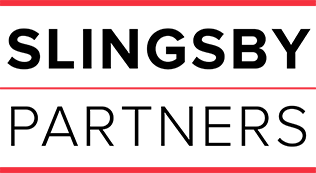Another take on the patent eligibility of abstract ideas
Ultramercial v. Hulu
The Federal Circuit has upheld the patent eligibility of US 7,346,545[i]: a patent directed to providing a consumer with copyright content for free over the internet in exchange for the consumer viewing an advertisement. The decision has been widely lampooned by the tech industry[ii] and points to a widening split in the US judiciary on the question of patent eligible subject-matter.
Claim 1 of US 7,346,545 defines a method for distributing products over the internet. The method includes steps of providing a media product that is covered by intellectual property rights for sale at an internet website, restricting general public access to the media product and offering a consumer access to the product without charge on the precondition that the consumer views a sponsor message.
The Federal Circuit first ruled on Ultramercial v. Hulu in 2011 by finding the claims of US 7,346,545 patent eligible. The Supreme Court then invited the Federal Circuit to change its mind, by vacating the Federal Circuit’s decision after its own ruling in Mayo v. Prometheus[iii]. Although the critical question in Mayo v. Prometheus was the patent eligibility of “laws of nature”, as opposed to the “abstract ideas” of Ultramercial v. Hulu, the Supreme Court clearly felt that it had given sufficient guidance on the question of patent eligibility for the Federal Circuit to reconsider its 2011 decision.
In the meantime, the Federal Circuit issued a deeply divided en banc decision in CLS Bank v. Alice Corp[iv] on 10 May 2013, which rejected method, computer readable medium and system claims on the grounds that they were directed towards abstract ideas. Applying reasoning that would not be out of place in Europe, the Federal Circuit explained that while claims to computers are eligible for a patent, claims that are directed to computers that have been routinely adapted by software consisting of abstract ideas that do tasks formerly performed by humans are not patent eligible.
This latest decision has come from Judge Rader: one of the dissenting voices in CLS Bank v. Alice Corp. It starts from the premise that a claim is not patent eligible only if, rather than claiming an application of an abstract idea, the claim is to the abstract idea itself. The claim must include meaningful limitations restricting it to an application. Mayo v. Prometheus provides the following guidance on when a claim is not meaningfully limited:
-
it merely describes an abstract idea or simply adds “apply it”;
-
it covers all practical implementations of an abstract idea;
-
it contains only insignificant or token pre- or post-solution activity; or
-
its purported limitations provide no real direction, provide all possible ways to achieve the desired result or are over-generalised.
Judge Rader pays lip service to Mayo v. Prometheus but appears to largely abandon its guidance when deciding whether the claims of US 7,346,545 are patent eligible. Instead he relies heavily on the twenty-year old In re Alappat[v], taking the approach that the claims are likely to be meaningfully limited if the invention involves computers as part of the solution, if computers are integral to the performance of the method or if the invention provides an improvement in computer technology. The following statement in the decision appears to encapsulate Judge Rader’s approach:
“At bottom, with a claim tied to a computer in a specific way, such that the computer plays a meaningful role in the performance of the claimed invention, it is as a matter of fact not likely to pre-empt virtually all uses of an underlying abstract idea, leaving the invention patent eligible.”
Judge Rader finds that the claims of US 7,346,545 “invoke computers and computer technology” and “require that the method be performed through computers, on the internet and in a cyber-market environment”. The decision then reproduces some of the diagrams of US 7,346,545 as proof of what Judge Rader sees as an “extensive computer interface”. It concludes that the claimed invention is not so manifestly abstract as to override the statutory language of section 101.
There are certainly lessons that could be drawn from Judge Rader’s words for those drafting claims directed to computer-implemented inventions and abstract ideas. The question is how pertinent those lessons are likely to be to the long term. It is hard to avoid the conclusion that Judge Rader’s decision was not what the Supreme Court had in mind when it asked the Federal Circuit to reconsider its 2011 decision. Taken together with the fact that Judge Rader was in a minority in finding the system claims patent eligible in CLS Bank v. Alice Corp., it suggest that caution perhaps should be exercised in relying on Judge Rader’s particular approach to the question of patent eligible subject-matter.
[i] http://www.cafc.uscourts.gov/images/stories/opinions-orders/10-1544.Opinion.6-19-2013.1.PDF
[ii] http://www.washingtonpost.com/blogs/wonkblog/wp/2013/06/24/one-of-the-worst-patents-ever-just-got-upheld-in-court/; https://www.eff.org/deeplinks/2013/06/federal-circuit-ultramercial-wrong; http://venturebeat.com/2013/06/25/tech-sector-to-courts-fix-ultramercial-or-patent-abuse-will-continue/; http://www.techdirt.com/articles/20130621/13450523560/patent-court-says-adding-internet-can-make-abstract-idea-patenta ble.shtml#comments
[iii] http://www.supremecourt.gov/opinions/11pdf/10-1150.pdf
[iv] http://www.cafc.uscourts.gov/images/stories/opinions-orders/11-1301.Opinion.5-8-2013.1.PDF
[v] http://digital-law-online.info/cases/31PQ2D1545.htm
